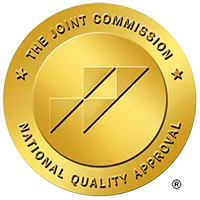Heroin and Fentanyl are Classified as
“Opiates or Opioids"
Few drugs are more addictive than opiates. While they aren’t the most dangerous or addictive drugs, they’re some of the most readily available. As such, people need opiate addiction treatment now more than ever. Knowing the signs and symptoms of opiate addiction might save their lives.
What Are Opiates?
 To put it plainly, opiates are narcotic drugs. Their purpose is to act as depressants on the central nervous system. They come from opium, which is a substance that people derive from the naturally occurring poppy plant.
To put it plainly, opiates are narcotic drugs. Their purpose is to act as depressants on the central nervous system. They come from opium, which is a substance that people derive from the naturally occurring poppy plant.
Two of the most common opiates are morphine and codeine. However, many prescription drugs are just name-brand versions of these drugs. For example, Avinza is a brand of morphine.
Knowing the brand and generic names of drugs is very important. Often, people take prescription brands and don’t realize that they’re opiates. As a result, they think that the pills are non-addictive. In the end, they find themselves searching for an opiate addiction treatment center in Denver for help.
Start Your Recovery Journey
Take the first step toward a healthier, substance-free life with our detox program.
Heroin and Fentanyl are Classified as
“Opiates or Opioids"
Few drugs are more addictive than opiates. While they aren’t the most dangerous or addictive drugs, they’re some of the most readily available. As such, people need opiate addiction treatment now more than ever. Knowing the signs and symptoms of opiate addiction might save their lives.
What Are Opiates?
 To put it plainly, opiates are narcotic drugs. Their purpose is to act as depressants on the central nervous system. They come from opium, which is a substance that people derive from the naturally occurring poppy plant.
To put it plainly, opiates are narcotic drugs. Their purpose is to act as depressants on the central nervous system. They come from opium, which is a substance that people derive from the naturally occurring poppy plant.
Two of the most common opiates are morphine and codeine. However, many prescription drugs are just name-brand versions of these drugs. For example, Avinza is a brand of morphine.
Knowing the brand and generic names of drugs is very important. Often, people take prescription brands and don’t realize that they’re opiates. As a result, they think that the pills are non-addictive. In the end, they find themselves searching for an opiate addiction treatment center in Denver for help.
The Scary Truth About Opiate Addiction Statistics
Doctors and pharmaceutical companies often downplay the opiate problem in America. However, people should make no mistake that opiates are a growing problem. The need for opiate addiction treatment has increased in the United States mainly because so many people abuse the drugs. Studies show that, in 2013, doctors gave out more than 200 million opiate prescriptions.
In fact, doctors prescribe opiates more in the United States than in any other country in the world. Between 26 and 36 million people abuse these drugs across the globe. The majority of them are from the United States. However, the overuse of prescription drugs isn’t the only reason why people need help from an opiate addiction treatment center in Denver.
Studies also show that over half a million people in the United States use heroin. The vast majority of them have some kind of addiction to the illegal drug.
In 2010 alone, over 17,000 people overdosed and died from opiates. The majority of these people never got help from an outpatient opiate addiction treatment center. One reason why overdose deaths happen is that the users don’t want to stop using. It’s up to their families and friends to help them get the treatment that they need.
Finding An Opiate Addiction Treatment Center
In most cases, people can’t overcome opiate addiction alone. It’s not because withdrawing from the drug is deadly either. In fact, withdrawing from opiates is rarely fatal. With that said, it’s so painful that people typically go back to using drugs again.
Of course, detox alone is not sufficient people overcome this addiction. They have to get opiate addiction treatment to deal with the root of the problem. It’s the only way for them to get on the path to recovery. “MAT” or Medication Assisted Treatment is the new evidence based modality created to better serve those with opiate addiction. Through both short term or long term options for Medication Assisted Treatment, RRRC is seeing higher success rates in treatment outcomes. Red Rock Recovery proudly offers MAT services at all levels of care and can strategically plan with our providers and patients the MAT course best suited for the individual.
About half of the time, the cause of addiction is some kind of underlying problem. Sometimes it’s physical pain, but other times it’s a mental health disorder. Regardless of the reason, a substance abuse treatment center can help people overcome it.
Symptoms of Heroin or Fentanyl Addiction
The below criteria was taken from the latest Diagnostic and Statistical Manual (DSM 5). If someone meets two or more of the above criteria, there may be an opiate abuse disorder present.
- Opioids (e.g. heroin, painkillers, or Fentanyl) are often taken in larger amounts or over a longer period of time than was intended
- There is a persistent desire or unsuccessful efforts to cut down or control opioid use (e.g. heroin, painkillers, or Fentanyl)
- A great deal of time is spent in activities, necessary to obtain heroin, use heroin, or recover from its effects
- Recurrent heroin/opiate/Fentanyl use resulting in a failure to fulfill major role obligations at work, school or home
- Continued heroin/opiate use despite having persistent or recurrent social or interpersonal problems caused or exacerbated by the effects of the opiates
- Recurrent heroin/opiate/Fentanyl use in situations in which it is physically hazardous
- Heroin/opiate/Fentanyl use is continued despite knowledge of having persistent or recurrent physical or psychological problem that is likely to have been caused or exacerbated by opiates
- High tolerance for opiate use
- Withdrawals experienced from lack of opiate use




